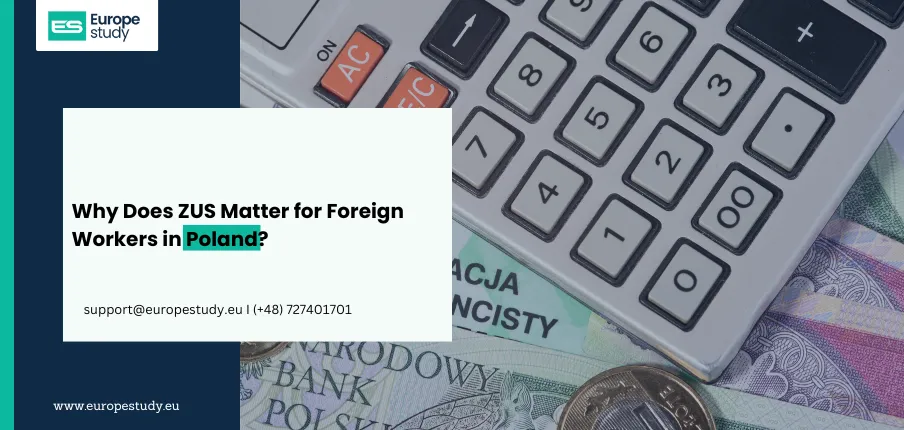
Do you need a diploma recognition (nostrification) to work in Poland?
If you’re planning to work in Poland and earned your degree outside the country, one important question may arise: Do you need to have your diploma recognized through nostrification? The answer depends on several factors, including your profession, country of origin, and the type of work you intend to do in Poland. In this post, we’ll break down what diploma recognition is, when it’s required, how the process works, and who is exempt.
What is Nostrification?
Nostrification is the process of officially recognizing a foreign diploma as equivalent to a Polish degree. It’s carried out by Polish universities that hold the right to award doctoral degrees in the relevant field. The nostrification procedure ensures that the level and scope of education you completed abroad matches what is offered in Poland.
This process is distinct from simply translating a diploma—it involves comparing curricula, assessing qualifications, and sometimes even passing additional exams or taking supplementary courses.
When Is Nostrification Required?
Nostrification is not always mandatory. Whether or not you need it depends on the purpose of your stay and the profession you’re entering.
You typically need nostrification if:
- You plan to work in a regulated profession, such as:
- Medicine
- Dentistry
- Architecture
- Teaching
- Law
- Engineering
- You are applying for a doctoral or postgraduate program in Poland and your foreign degree needs to be assessed for equivalency.
- You are required to present your diploma for legal or official purposes (e.g., civil service jobs).
You do not need nostrification if:
- You hold a diploma from an EU, EEA, or OECD country and the profession is not regulated.
- Your employer accepts your qualifications without additional validation (common in the private sector, especially in fields like IT or marketing).
- Your diploma is subject to automatic recognition agreements (e.g., degrees from EU countries in some non-regulated fields).
Common Exemptions and Automatic Recognition
Poland is part of the Bologna Process, and as such, degrees from EU/EEA countries are often more easily recognized. If you come from a country that has a bilateral agreement with Poland regarding academic recognition, you might be eligible for automatic recognition of your degree.
For example:
- Degrees from countries like Germany, France, the UK, and other EU members may not require nostrification for many jobs.
- Diplomas from countries outside the EU/EEA, especially in regulated fields, will typically require nostrification.
The Nostrification Process Step by Step
- Choose a university in Poland that has the right to issue PhDs in the field your diploma is in.
- Submit your application, including:
- Original diploma and transcript (with sworn translation into Polish)
- Proof of identity (passport or ID)
- Information about your studies (course list, syllabi, academic workload)
- Application form and payment of administrative fee (usually around 400–600 PLN)
- Undergo assessment, where the university compares your program with its own curriculum.
- Outcome:
- If equivalent, your diploma is recognized.
- If there are substantial differences, you may be required to take additional exams or complete certain courses.
- Receive the nostrification certificate confirming recognition.
The process can take several weeks or even months, depending on the completeness of your documentation and the institution’s capacity.
Alternatives: Professional Recognition (for Regulated Professions)
For regulated professions, nostrification may be just one part of the process. Some professions require professional recognition by Polish authorities, such as:
- The Ministry of Health for doctors and nurses
- The Polish Chamber of Architects or Engineers
- The Ministry of Education for teachers
These bodies may impose additional requirements such as language proficiency, licensing exams, or internships.
Key Takeaways
- You don’t always need nostrification to work in Poland—many private sector jobs, especially non-regulated ones, don’t require it.
- Regulated professions and public sector roles often demand diploma recognition or professional licensing.
- EU diplomas are often more easily accepted, but each case is evaluated individually.
- The nostrification process can be time-consuming, so plan ahead and gather all your documents early.
Final Thoughts
If you’re unsure whether your diploma needs to be nostrified, the best first step is to check with:
- Your prospective employer or recruiter
- The Ministry of Education and Science
- A university in Poland that evaluates degrees in your field
Understanding the requirements early can help you avoid delays in employment or visa processing and set you up for a smoother start to your professional life in Poland.





